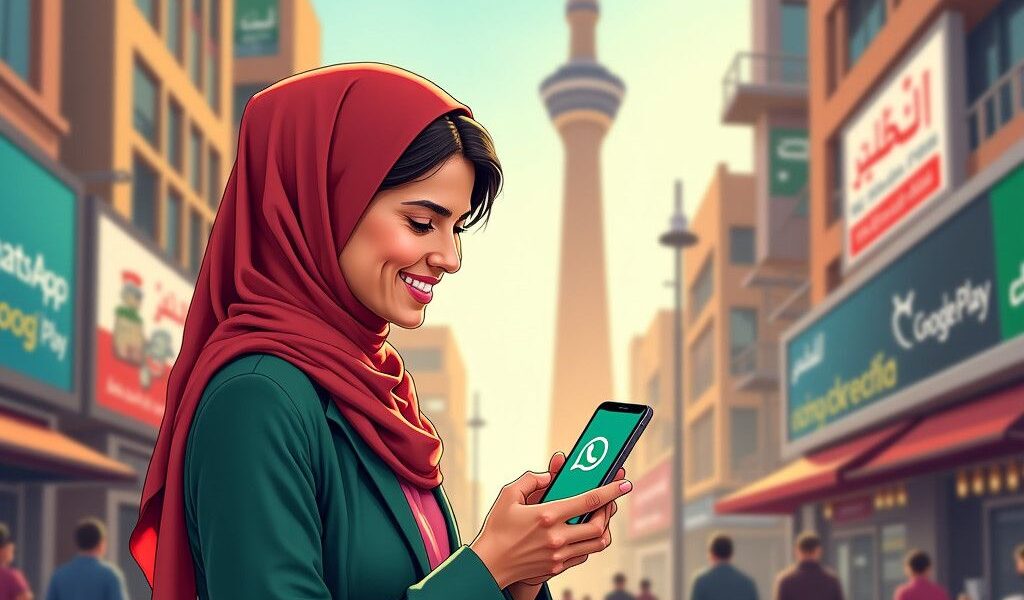Understanding the Impact of Iran's Restoration of Access to WhatsApp and Google Play
On December 25, 2024, Iran announced the restoration of access to two major online platforms: WhatsApp and Google Play. This decision marks a significant shift, as previous restrictions were imposed under the guise of national security. Understanding the implications of this move is crucial for both local citizens and international observers.
Historically, social media and application platforms have been tightly controlled in Iran. The government has frequently implemented bans on apps deemed to threaten its authority. For instance, in 2022, there were widespread protests against inflation and government policies, leading the authorities to temporarily block access to several online services. Hence, the reopening of WhatsApp and Google Play reflects a potential change in governmental approach, possibly towards greater digital freedom.
The Reasons Behind the Restriction Lifting
While the specific motivations for the December 2024 decision remain unclear, several factors could have influenced this change. Increased pressure from Iranian citizens for better communication tools may have played a significant role. For many Iranians, WhatsApp is not just a messaging application but a vital tool for maintaining social and professional connections. The inability to access such a platform can drastically affect individual freedoms and daily life.
Furthermore, the Iranian economy is grappling with severe challenges due to international sanctions, exacerbated by the pandemic and other internal policy decisions. Allowing access to Google Play could stimulate local app development and digital services, potentially leading to economic growth. This move might indicate the government’s desire to revitalize the tech sector and enhance innovation within its borders.
The Potential Risks and Opportunities
With the restoration of these platforms, opportunities arise for various stakeholders. Small businesses in Iran can leverage WhatsApp for customer engagement and marketing purposes. The ease of access to international applications can enhance e-commerce activities, allowing local entrepreneurs to broaden their markets. For example, businesses can now utilize online advertising on platforms integrated with Google services to reach a wider audience, which may lead to increased sales and sustainability.
However, this reconnection does not come without risks. The Iranian government has historically monitored online activities, often surveilling communications on platforms like WhatsApp. This restoration might see an uptick in surveillance practices as the government seeks to maintain control over the narrative and limit dissent. It remains crucial for citizens to remain vigilant about their online privacy and the potential misuse of personal data.
The Impact on Digital Marketing and E-Commerce
The reintroduction of WhatsApp and Google Play can lead to shifts in digital marketing strategies for businesses operating in Iran. Companies can adopt new marketing tactics, such as utilizing WhatsApp’s business API for automated customer responses and personalized marketing campaigns. Additionally, the accessibility of various applications through Google Play expands the tools available for digital marketers, such as analytics and customer relationship management (CRM) systems.
E-commerce also stands to benefit significantly from this move. By enabling access to a wider range of tools and platforms, Iranian businesses can improve their online shopping experiences, from streamlined payment options to enhanced customer service. Consider the example of local retailers who, using WhatsApp, can connect with customers in real-time, addressing queries, taking orders, and improving overall service, which is vital in today’s competitive marketplace.
Future Prospects
As Iran moves forward, the implications of restoring access to WhatsApp and Google Play bear close monitoring. Will this lead to a more open digital environment, or will the government implement higher levels of control under the guise of monitoring for national security? How will citizens adapt to the renewed access while protecting their privacy amid an ever-watchful government?
The unfolding situation will have lasting effects on the digital landscape within the country, affecting how businesses interact with customers, how consumers access services, and the overall economic health of the nation.
In conclusion, the restoration of access to WhatsApp and Google Play is a notable development for Iran. It symbolizes a potential shift towards greater digital freedom while presenting both opportunities and challenges for individuals and businesses alike.








